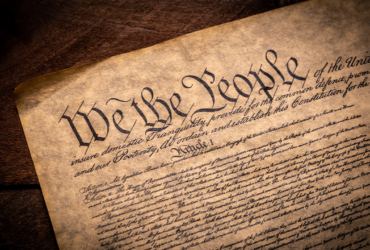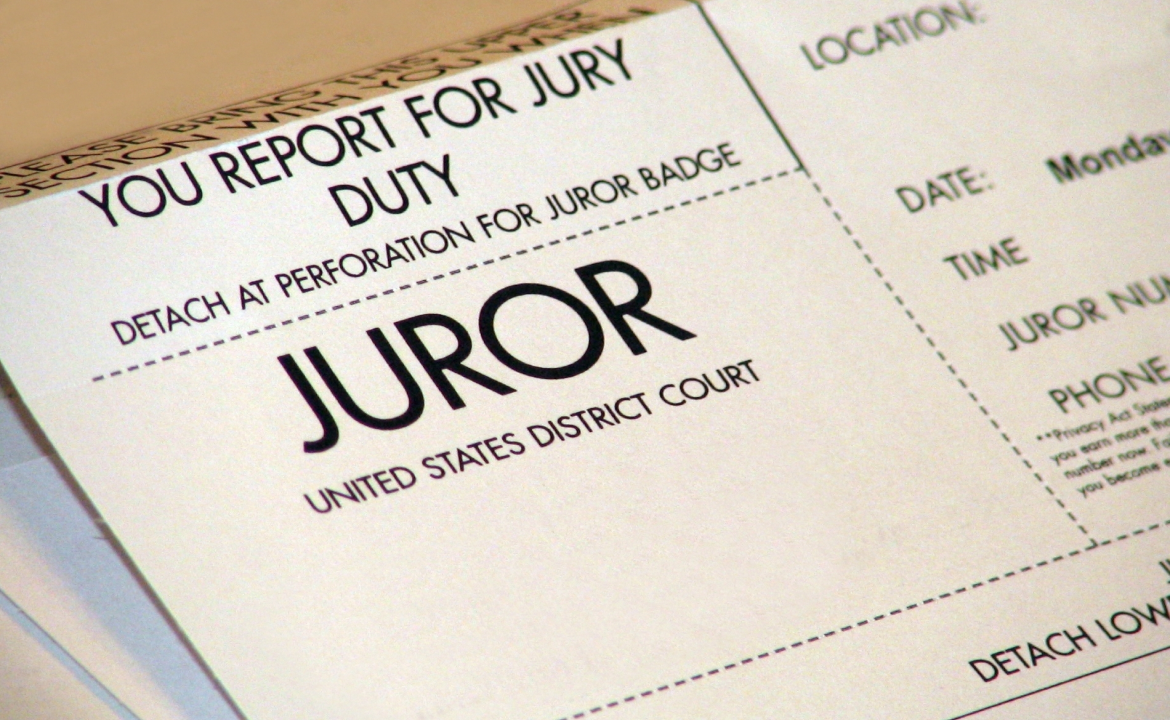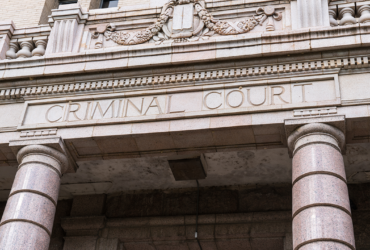Criminal Justice System
We have the oldest written constitution still in force in the world, and it starts out with three words, ‘We, the people.’
–Former Justice Ruth Bader Ginsburg
The word “Justice” deserves to be underscored and better understood if we are to keep and preserve our constitutional democracy. It will require a system of justice grounded in principles of fairness and equal protection of the law. A criminal justice system that is careful not to overstep its bounds or violate the rights of individuals.
Our criminal justice system is charged with enforcing our laws, providing for public safety, and ensuring fair and equal justice to those suspected and accused of criminal acts.
The three institutional branches that make up the criminal justice system are law enforcement, criminal courts, and the incarceration system we know as jails and prisons.
We will begin by examining the individual’s constitutional rights and how these rights are designed to limit the potentially overreaching power of law enforcement. The purpose behind such limits is to discourage law enforcement from violating constitutional norms, such as engaging in warrantless and unlawful searches, seizures, and arrests.
Our free criminal law advice and justice articles will also examine the different phases and procedures of a criminal trial and the special roles judges, prosecutors, defense lawyers, and jurors play in determining the guilt or innocence of a criminal defendant.
Finally, we will learn about post-trial motions, sentencing, appeals, and what it’s like to enter the prison system.
Constitutional Protections
What if you or a family member were charged with a serious crime? You might be relieved to know there are fundamental rights and protections afforded to the accused, such as the right against self-incrimination, the right to an open and fair trial, the right to confront and examine your accusers, and the right to a speedy trial.
Miranda Rights – Right Against Self-Incrimination
The right to be informed of one’s constitutional rights when arrested comes from the landmark Supreme Court decision Miranda v Arizona. The court applied the constitutional right against self-incrimination to police arrests in holding:
“There can be no doubt that the Fifth Amendment privilege is available outside of criminal court proceedings and serves to protect persons in all settings in which their freedom of action is curtailed in any significant way from being compelled to incriminate themselves.”
Based on the Miranda ruling, the police must, upon the arrest of a suspect, read them their constitutional rights, which include the right to remain silent, the right against self-incrimination, the right to consult with a lawyer, and to have the lawyer present during all future questioning.
Right to Reasonable Bail
The Eighth Amendment prohibits the imposition of excessive bail. While there is some debate about whether reasonable bail should be considered a fundamental right of the accused, it is generally agreed the amount of bail should neither be used as punishment nor be set higher than an amount reasonably likely to ensure the defendant’s returned presence at trial.
Bail agents play an essential role in facilitating a fair and informed pretrial release of the criminal defendant. Before the defendant is granted bail, the defendant must agree and fully comply with strict terms and conditions imposed by the court and the bail release agreement.
Suppose the defendant violates the terms or conditions of bail, such as fleeing the court’s jurisdiction. In that case, the bail agent has the right to retain the services of a bounty hunter to locate, capture, and return the defendant into police custody.
Federal Criminal Courts
Most crimes committed in the U.S. are violations of state law. The general rule is that state law violations are prosecuted in state courts, and crimes that violate federal law are prosecuted in federal district courts.
Thousands of criminal statutes define different types of crimes and the conditions under which a crime is classified as a felony or a misdemeanor.
Criminal Law Categories
For the sake of clarity, in our section on types of crimes, we have grouped them into six major categories. Our criminal law blogs include the following categories:
- crimes against persons and property
- drug crimes
- fraud and theft crimes
- sex crimes
- juvenile crimes
- drug and alcohol impairment crimes
Examples of Crimes Against Persons:
Crimes against persons include acts or threats of acts that cause bodily harm. These include assault and battery, domestic violence, murder, and manslaughter.
Depending on the number of offenders and co-conspirators, the prosecutor can apply the federal or state RICO laws.
Examples of Crimes Against Property:
Crimes against property include arson, acts of vandalism, and damaging or destroying property if the damage or destruction was caused during the commission of a crime such as theft.
Examples of Drug Crimes:
Possession and sale of illegal drugs, such as a few grams of cocaine for personal use, can carry severe drug crime penalties, especially if you are a repeat offender. With that said, the penalties for cultivation, manufacturing, trafficking, and large-scale distribution can result in a sentence of thirty or more years in a state or federal prison.
Violations of drug laws are enforced and prosecuted by local, state, and federal governments. It should be noted that compared to the states, federal enforcement of drug laws is much stricter, and convictions result in longer prison terms.
Examples of Sex Crimes:
Under this sex crimes grouping, we include the crimes of sexual assault, rape, child molestation, making, distributing, and possession of child pornography. We will also examine the relatively new crime of sexting and how state prosecutors interpret these statutes when making criminal filing and charging decisions.
Our articles about criminal law also cover the federal and state laws requiring sex offenders to register with local law enforcement and publicly disclose their identity, residence, and the sex crime(s) the offender committed.
Examples of Theft and Fraud:
Theft and fraud crimes cover a large segment of criminal behavior and are the most committed crimes. Under this grouping, we include crimes such as common misdemeanor theft, such as shoplifting, to more serious larceny crimes, such as embezzlement, armed robbery, identity-credit card theft, and mortgage fraud.
Juvenile Courts:
This criminal law section examines how minors are prosecuted under the state juvenile justice system. Minors who are charged with a crime are subject to different procedures and special sentencing rules.
Learn about juvenile rights and under what circumstances juvenile records can be ordered sealed and convictions expunged.
Drug and Alcohol Impairment
The criminal act of driving while impaired means the driver was determined to be unable to safely operate a motor vehicle due to the consumption of alcohol or drugs. (Also known as DUI, DWI, and OWI)
Learn about how police officers investigate drunk driving cases.
Other than the relatively minor crimes associated with public intoxication or disturbing the peace driving under the influence of drugs or alcohol can be a serious crime that will likely require the services of a drunk driving criminal defense lawyer.
Public safety experts consider driving while impaired a dangerous crime and can carry stiff penalties depending on the number of prior convictions the driver has accumulated or whether the DUI resulted in an accident causing property damage, serious injury, or death.
In cases involving severe injury or death, with priors, it is not unusual for the defendant to be charged with manslaughter and sentenced to prison and other penalties, including the permanent loss of one’s driver’s license.
The criminal law articles in our impaired driving crimes section examine the rules of evidence relating to police field sobriety tests, the accuracy of blood, breath, and urine tests, and the consequences of refusing to take a chemical test, which in most states, is a separate criminal offense.
Finally, this section will also include tips on how to retain an experienced drunk-driving defense lawyer.
The Criminal Law Process
The Pretrial and Trial Process
A criminal case consists of several distinct phases. The initial phase usually begins in the federal system with being declared a target, grand jury indictment, and arraignment.
The criminal pretrial discovery process typically includes pretrial conferences, discovery, and the bringing of pretrial motions. The final stage deals with the laws and procedures of the criminal trial.
Whether a criminal case is plea-bargained out of the system or proceeds to trial depends on the weight and value of the evidence obtained in the pretrial discovery phase.
If there is a legal basis, the defense will file motions to exclude specific evidence at trial on the grounds that the evidence was obtained in violation of the Constitution and, therefore, must be excluded from trial as a matter of law. How the court rules on these motions often determines the case’s fate.
Phases Of A Criminal Trial
A criminal trial embodies a complex area of law and procedure. In this free criminal law advice section, we examine the roles of the judge, jury, and counsel in the criminal trial process.
We learn about jury selection, the rules governing the direct and cross-examination of witnesses, and how the basic criminal rules of evidence, such as the judicial use of selective admissibility, can determine the trial’s outcome.
Selective use of admissibility occurs when a court conditionally allows evidence to be used for a narrow and particular purpose while otherwise prohibiting the same evidence from being used for any other purpose.
We will also look at the court’s closing instructions to the jury, the jury’s deliberation process, and what happens when a jury cannot reach a unanimous verdict.
Finally, in the case of a guilty verdict, we will look at post-trial motions, the sentencing process, and the federal appeals process.
Types of Prison Systems
State and Federal Prisons – Locating A Prisoner
State and Federal Prisons By State
Federal Prisons By State
The United States has the highest incarceration rate in the world.
According to VEGA.org, in 2022, 2,850 state and local jails held about 658,000 people on any given day. As of 2019, there were more than 10.3 million jail admissions.
This criminal law section examines state and federal prison systems, including what it’s like to be entering prison for the first time. We will learn how prisoners get initially processed and how prison intake and admissions procedures work.
New prisoners are instructed on how to address and speak with prison guards, interact with other prisoners, and be informed on prison policies, such as the rules governing toilet and shower privileges and how to deal with prison violence.
Families of Prisoners – Helpful Services
Caring for someone who is on the inside is a stressful, confusing, and depressing reality. We provide helpful services on how families of inmates can keep regular contact with their loved ones through services that facilitate prison visits, telephone calls, and inmate e-mail services.
Finally, for those family members left behind, we provide information on how they can access mental health and support services. We also offer a long list of criminal law online and local support groups that family members can attend, share insights, and receive emotional support.







